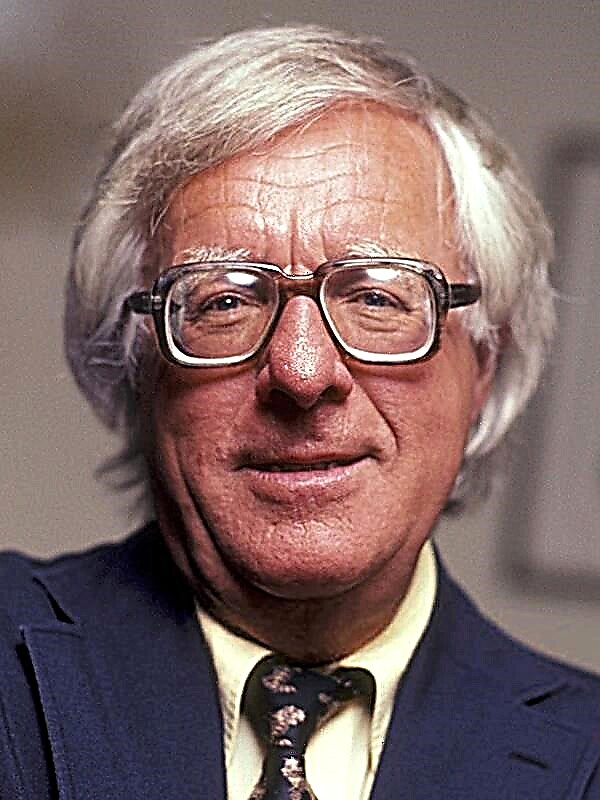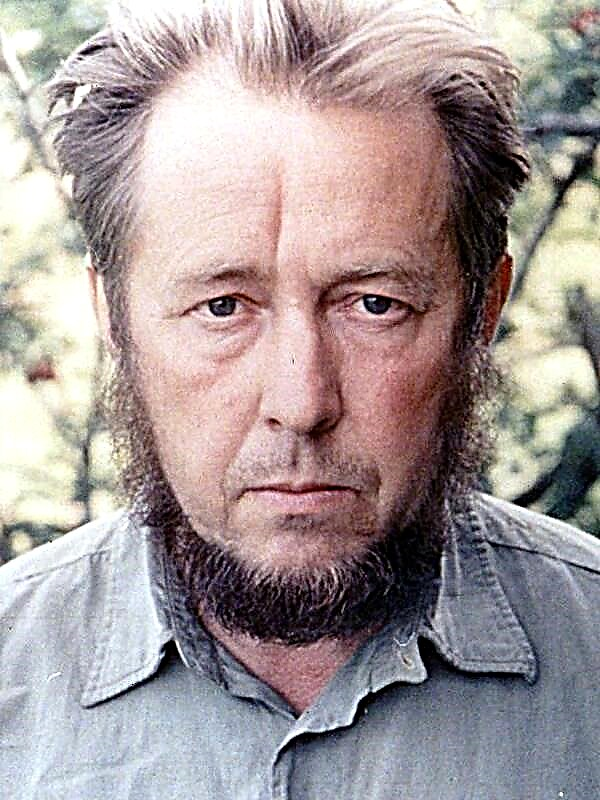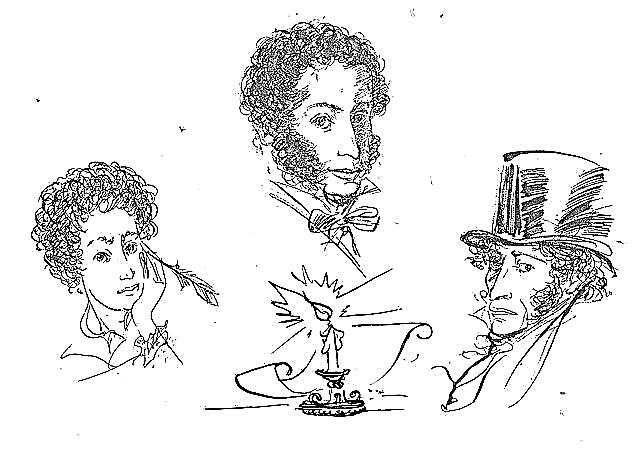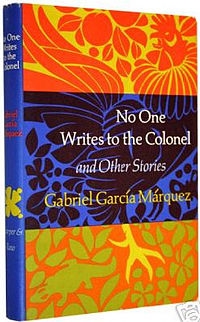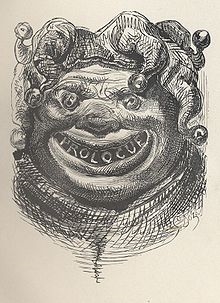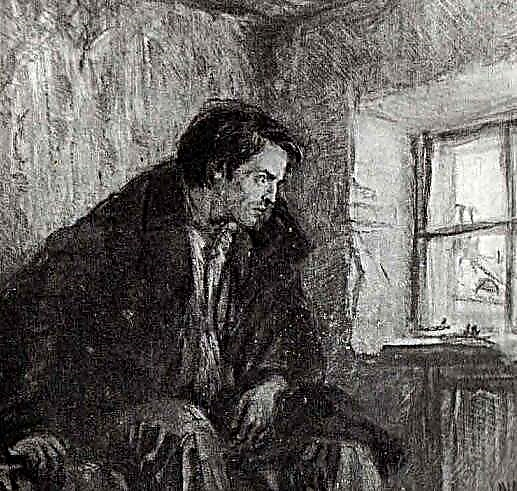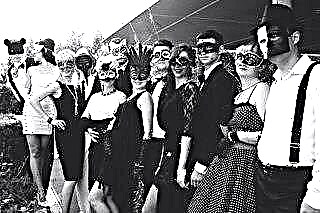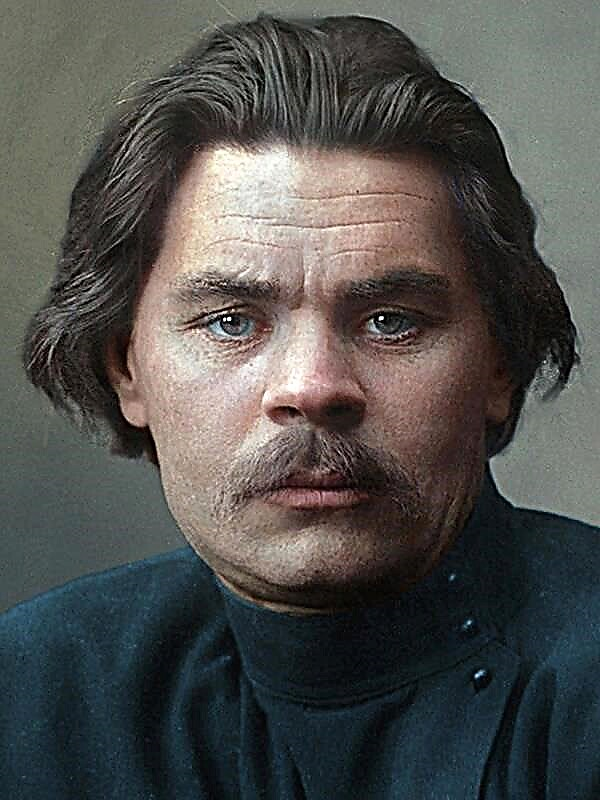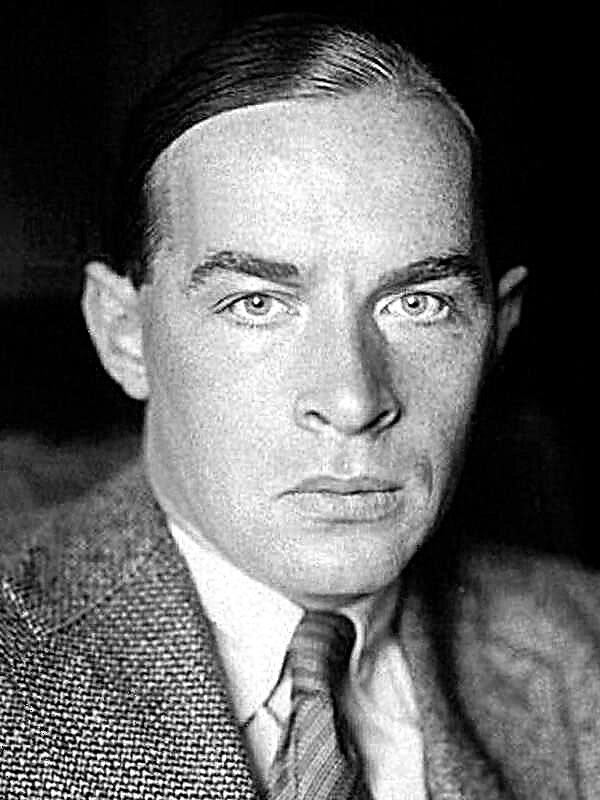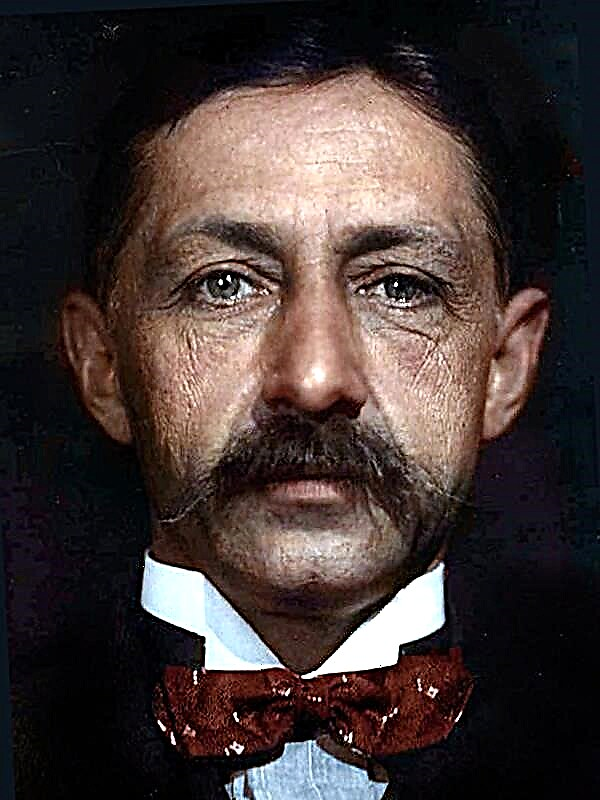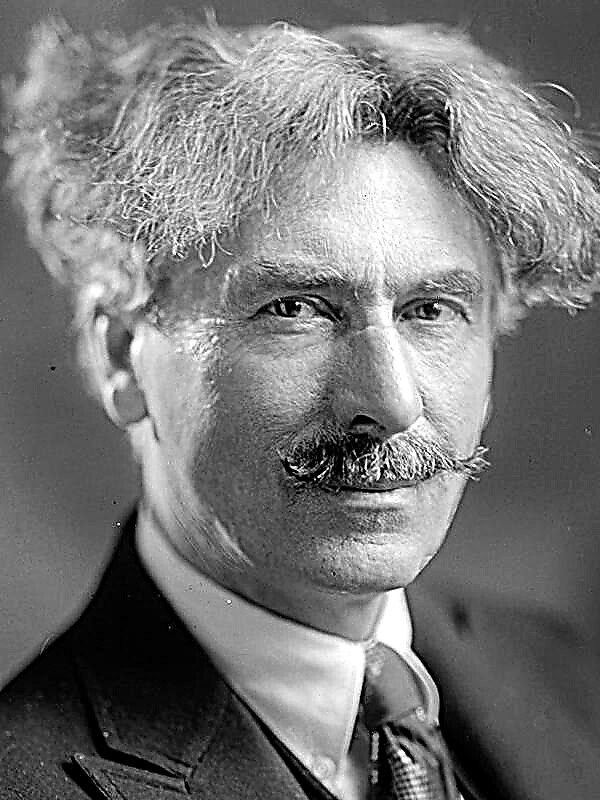The main advantage of Pushkin's prose is that books written in a simple and accessible language make you think, first of all. The range of the writer’s creativity is so wide that every person will be able to find answers to the pressing questions of our time in Pushkin’s works.
History of creation
In the period from October 1832 to February 1833, Pushkin worked on a new novel, which is written amazingly quickly, in pencil. But, having finished it, he does not publish it in print. Apparently, there were reasons for that. "Dubrovsky" was published in 1841.
The sincere friend of the writer, P. V. Nashchokin, “gave” Pushkin the “history” of the nobleman Ostrovsky, which became the starting point in writing this work. One of the heroes (Vladimir Dubrovsky) originally bore this name. But then Alexander Sergeyevich changed his mind. The characters the old man Dubrovsky and Troekurov had their prototypes in real life: the landowners lived in the Nizhny Novgorod province. Kistenevka was located near Boldin, the poet inherited from his father. Landscape sketches, morals of serf life bear the imprint of the writer's Pskov and Mikhailovsky impressions.
How did Pushkin want to complete Dubrovsky? The idea of the novel was changing. Initially, the main character marries Masha. When she got sick, Vladimir takes his wife to Moscow, and dismisses the "gang". But the author did not like such a finale.
Genre, direction
According to the genre, on the one hand, Dubrovsky is a social and everyday novel. On the other hand, the broad picture of Russian life of the 30s of the XIX century, presented in the work, gives the right to speak of a historical novel.
Pushkin’s mastery was especially pronounced in the creation of typical characters. The realistic image of Dubrovsky is endowed with the features of romanticism.
The plot literally captures the reader, as it includes elements of the "adventurous" genre.
Essence
The main events in the novel unfold in the village. Kirila Petrovich Troekurov and Andrei Gavrilovich Dubrovsky - nobles, peers who were formerly comrades. Having given their military duty to their homeland, they retired and settled on their estates. Widowed early. There was complete agreement between the landlords.
Once, an old man Dubrovsky said out loud that serfs at Troekurov live worse than dogs. The fortress Paramoshka allowed himself an unseemly hint to Andrei Gavrilovich, who, without saying anything, “turned pale” and quietly disappeared.
Kirila Petrovich used his many opportunities to return a "rebellious friend." However, Andrei Gavrilovich demanded to send him the hound Paramoshka with confession. This demand infuriated the rich landowner. This incident sowed enmity between former comrades.
With the help of fraud, assessor Shabashkin passes through the court the decision to “return” Kistenevka to her “real” master. Kirila Petrovich understands that this is too much, is experiencing the torment of conscience and is trying to make peace with Andrei Gavrilovich. But the attempt ends in failure: the old Dubrovsky passes away.
Deprived of the estate, the son of Dubrovsky, Vladimir, becomes a robber. He wants revenge on Troekurov. The case gives Vladimir the opportunity to appear in the Troyekurov family under the name Deforge as a French teacher. Meeting Masha, the daughter of his enemy, he abandons his venture.
Subsequently, Vladimir confesses to Marya Kirilovna his feelings, it is revealed that he is the son of Dubrovsky. He promises his support if Masha finds herself in a difficult situation.
The rich Vereisky wooed to Masha.
But for her it is better to marry the robber Dubrovsky than to become the wife of an unloved person. She asks a friend for help. Vladimir is in a hurry to free Marya Kirilovna, but late: the wedding ceremony took place. Masha is forced to stay with her legal husband. Dubrovsky, having dismissed his "robbers", goes abroad. This is what the book tells about.
The main characters and their characteristics
- Kirila Petrovich Troekurov belonged to a noble noble family. He rose to the rank of general-general. Having retired, he settled in the village of Pokrovsky. He was physically unusually strong. Had vices of an uneducated man. His ardent disposition did not allow him to lead a measured life. Every evening was tipsy. He was distinguished by hospitality. His house was never empty, but gathered people of the highest rank. Despite the faces and positions, Troekurov behaved arrogantly. No one had the right not to appear at the appointed time, and even more so, to refuse the invitation. His name alone made others tremble. He treated the peasants and farmsteads waywardly. In a fit of anger, the two teachers spotted to death. His favorite pastime is hunting. Troekurov's pride was a kennel, where more than five hundred hounds and greyhounds “lived in contentment and warmth”. Kirila Petrovich was not greedy. Human feelings were still preserved in his soul and sometimes burst out. When the court ruled to transfer Kistenevka to his full possession, his heart did not rejoice. He sympathized with his former comrade, deciding to make peace. Unfortunately, this impulse of the soul led to a tragic outcome. Such is the characteristic of Troekurov.
- Andrey Gavrilovich Dubrovsky - An impoverished nobleman, in whose possession was the village of Kistenevka with seven dozen serf souls. By nature, a person is direct, impatient, proud and decisive. He had his own opinion, was not afraid to express it directly. Being poor, he refused the patronage of a rich comrade, retaining his independence. Widowed early, adored his son. Caring for his future, he spared nothing for his decent maintenance. He saw his support in his son in old age. An experienced hunter, "a delicate connoisseur of dog virtues." Without him, Kirila Petrovich never went hunting.
- Vladimir Dubrovsky fate did not spoil at all. He did not know maternal care and affection: his mother died early. Father gave the seven-year-old boy to be brought up in the Petersburg Cadet Corps, after which Vladimir served in the guard. The young man did not care at all about his future, knowing that he would always find a rich bride. Allowed various whims, without denying anything to himself. Having received a letter from Yegorovna, he decided to go to his father, whom he loved very much, and, if necessary, to resign. Vladimir Andreevich had a sensitive and responsive heart. He respected his courtyards with respect and appreciation. In Kistenevka they loved him, and the yard was happy to meet his young master. Being honest and fair, he did not take any measures to keep the estate, because he believed in a fair court decision. Forced to become a robber, he was famous for generosity, intelligence and courage. The estates of his "offender" did not rob, which caused surprise in others. At the first meeting with Masha, Vladimir is embarrassed, awed. His changed voice suggests that the girl made a lasting impression on him. Love for Masha helps to give up revenge on his former comrade. From now on, all people associated with fate with Marya Kirilovna become untouchable for the hero. Hatred gives way to forgiveness. In the house of Troekurov everyone revered him as their man. Courage, courage, decisiveness, resourcefulness are important qualities of his character, fully manifested in a collision with a bear that was shot dead by the right hand of the "Frenchman". A sincere man, Deforge “reveals” to Masha his real name. He does not want even a drop of lies to creep into their relationship, such is the straightforward nature of Dubrovsky. At the same time, he realizes that Masha can be with him only in the most difficult circumstances for her. She is the daughter of her father, and lives according to the laws of a noble society, and Vladimir violated these laws.
- Seventeen-year-old Masha - the daughter of Troekurov, who sincerely loves her, but does not always reckon with her desires. There is no trust between them. Masha never shared her innermost feelings with her father. Just like Vladimir Dubrovsky, she did not know maternal tenderness, she grew up all alone. All her education consisted in reading novels by French authors. Fluent in French, she acted as a translator for her father. At the same time, rough speech was always gently softened. A talented girl, Masha had excellent musical abilities. Marya Kirilovna, having read French books, dreamed of romantic love, the hero of her novel should be a brave man, a representative of the aristocratic milieu. She did not react to the appearance in the house of Deforge, the teacher Sasha. When the Frenchman, not bewildered, dealt with the bear, the heroine was forced to admit his brave heart and proud pride. Having fallen in love with the “young robber,” Marya Kirilovna turns to his help when his father agrees to the proposal of Prince Vereisky to marry his daughter. When Dubrovsky “gives her freedom”, she refuses to accept her, explaining that she honors the wedding ceremony and cannot go against him. True to the oath before God, Masha remains with her unloved husband.
- The image of Pushkin. The novel is narrated on behalf of the author, who describes the events in chronological order in a simple, accessible language. His attitude to the events is manifested in the descriptions of the actions of the heroes, psychological characteristics given to the characters. So, the excitement of Kir Troekurov’s thoughts for the fate of his old neighbor was reflected in his “whistling” of the opening line from the poem by G. R. Derzhavin, “Thunder of Victory Deal”. It was no coincidence that Pushkin took the verse from the ode of G. Derzhavin "On the Death of Prince Meshchersky" in the epigraph to chapter IV of the first volume. These lines predetermine the tragic events that will be discussed. Pushkin as if warns: time is fleeting. Grief came to the hospitable and bright house of the Dubrovskys: there was no master.
- Landscape the author does not "live" separately on his own. It is a means of psychological characterization of characters and a means of expressing the thoughts and feelings of the author. When the old Dubrovsky was buried, "the day was clear and cold." “Autumn leaves fell from the trees”, symbolizing the end of life of a bright, honest man. Surviving the death of his father, Vladimir goes into the grove to be alone with nature and enjoy the peace reigning in it. He contemplates for a long time the "quiet course of a stream that blows away several faded leaves." Pushkin creates a vivid metaphor: life on Earth does not stop, and ordinary mortals who have outlived their lives leave it.
If we talk about the attitude of Pushkin to Vladimir Dubrovsky, he does not idealize his hero, does not admire his "heroic" actions, does not praise his best character traits. Most likely, he sympathizes with the young man, whom circumstances did not allow to reveal fully, but, on the contrary, made his life worthless, useless to anyone, forced him to leave his homeland. The author's position is sympathy.
Themes and Issues
The themes and issues raised in the novel have not lost their social significance today.
- The main theme is the social contradictions of the life of the nobility, a reflection of the mores and customs of a certain era.
- The theme of the people manifests itself in a special way. Pushkin knew well his life, closely interwoven with faith in miracles and signs. When Vladimir came across a priest with all due regard, the young man involuntarily hid behind a tree, since according to popular beliefs this omen bears only misfortunes.
- Social conflict of masters and slaves. Cordiality, kindness, devotion to its owners are features that have been inherent in the Russian national character for centuries. To a generous master, the people serve faithfully and are ready to go to the most extreme acts. So, the courtier who arrived with the officials of Mr. Shabashkin was ready to destroy. And only the domineering voice of the owner, who assured that the sovereign interceded for them, did not allow lynching. Nevertheless, lynching occurred when the blacksmith Arkhip, contrary to the order of Vladimir, closed the door of the house set on fire by a young Dubrovsky with a key. Everyone burned in this fire.
- The problem of cruelty is intertwined with the problem of mercy. The same Arkhip, having seen a cat rushing about in fire, having forgotten about danger, saves it (“God's creature perishes, but you ... rejoice”).
- Pushkin peculiarly approached a new topic about the corrupting power of money, "killing" in man all the best moral qualities.
- The problem of rebellion, growing into peasant uprisings against violence against the human person. The rebels are led by a nobleman who opposes the tyrants of the landowners.
- The problem of power, to which everything is allowed, operating according to the principle: "The law that draws wherever you turn, it turned out there."
- The problem of fathers and children". The novel features two generations. The story of the enmity of the "fathers" is a "prelude" to the failed love of the "children." Social issues are revealed in the relationship between daughter and parent. Marya is afraid of daddy, does not trust him, and loneliness pushes her into the arms of Dubrovsky. The father himself does worse, depriving the child of freedom of choice and condemning the girl to an unhappy life.
- The main problem, which has always worried Pushkin and finds a lively response in the hearts of readers, is the problem of the relationship between man and society. Each personality is individual in its development, has its own views on certain events, its own point of view. But the life of society is also governed by its laws and traditions. Is it possible to ensure that public views coincide with the affections and sympathies of ordinary people? Is friendship and love possible between people at different levels of the social ladder?
The main idea
The meaning of the novel is to compare the fate of a prosperous and impoverished aristocracy, which reveals a disappointing conclusion: power is not on the side of nobility, it supports only the rich. Pushkin shows how two people with the same position, the same services to the homeland, are not equal before the law. The management system is rotten, "justice" is given out for money. And until this changes, such progressive, strong and gifted descendants of the noble families as Vladimir will be superfluous people whose lives are destroyed by corrupt officials and capricious moneybags. The author condemns the existing order in Russia and sympathizes with his hero, in whose fate he saw his problems. Pushkin was also noble, but poor, and he was also not recognized in society. It is known that N. Goncharova’s parents did not seriously consider his proposal until he achieved the goal with his perseverance.
Also, the main idea of the novel is the need for compromise in all areas of life. The era of Pushkin is clearly not enough tolerance. The father forcibly passes off his daughter as an old man, a comrade cannot forgive a comrade, a deceived person cannot achieve the truth in court, and the employer tries to brutally kill the employee by setting a bear on him. People do not know how to communicate in a civilized manner and achieve mutual understanding, because of this all conflicts in the book occur. The author tried to educate
What does it teach?
Pushkin teaches "cherishing the soul of humanity." Only sincere, disinterested, faithful love and friendship that comes from the depths of one’s soul and does not depend on what place a person occupies in the “ranking card” can change a society in which each individual will feel like a Person. The moral of the novel proves the need for every citizen to strive for social equality.
The author’s conclusion is simple and logical: you need to learn to understand and respect each other’s needs, live a Christian life, and not just observe external rites.
Criticism
Pushkin’s novel was perceived by literary critics in different ways. So, reactionary reviewers rated it as “praising crimes”, confident that this is one of the reasons why Pushkin did not publish the work after its completion. Another reason was that Dubrovsky was a mock copy of the "bandit and adventurous" books so popular abroad. All together gave reason to doubt the artistic perfection of the novel, freeing it from the pressing social content.
V. G. Belinsky, a representative of the democratic trend in literature, was initially enthusiastic about the work, calling it “one of the greatest creations of the genius of Pushkin”. Later in his writings, he noted the “marvelous” sides of the story: a description of the life of the Russian nobility reigning in Russia in corruption proceedings, the creation of peasant images, the character of the heroine. I did not fail to emphasize that Dubrovsky “does not excite participation”.
I. Turgenev was delighted with the "epic powers" of the poet in creating the image of Troekurov.
The melodramatism of Dubrovsky, which Belinsky also noted as a weakness of the novel in his articles, is explained by the criticism of the 1930s and 1950s as a consequence of Pushkin’s plan, which led the peasant rebellion to a rebellious nobleman.
In the works on Dubrovsky written at the end of the 20th century, the artistic merits of the novel are “rehabilitated”.

